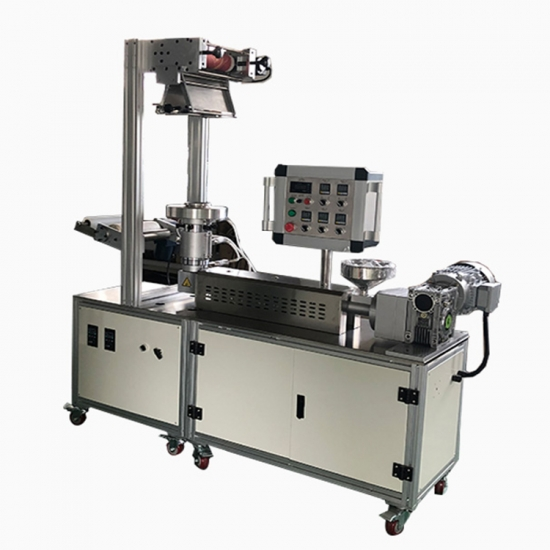What Are the Benefits of a Lab Blowing Film Machine?

Lab blowing film machines are essential tools in the plastic film manufacturing industry, particularly for research and development (R&D), small-scale production, and quality control. These compact yet highly efficient machines allow manufacturers, researchers, and educational institutions to produce high-quality plastic films under controlled conditions.
But what exactly are the benefits of using a lab blowing film machine? Below, we explore the key advantages that make these machines indispensable in modern film production and testing.
1. Cost-Effective Research & Development
Developing new film formulations or testing different polymer blends can be expensive when done on an industrial scale. A lab blowing film machine allows researchers to conduct small-scale trials, minimizing material waste and reducing costs. This enables companies to experiment with new materials, additives, and processing conditions before committing to full-scale production.
2. High Precision and Control
Lab-scale film blowing machines offer precise control over key parameters such as:
· Temperature – Adjustable heating zones ensure optimal polymer melting.
· Blow-up ratio (BUR) – Controls the film’s thickness and mechanical properties.
· Take-up speed – Influences film orientation and strength.
· Cooling rate – Affects crystallinity and transparency.
This level of control helps in fine-tuning film properties for specific applications, such as barrier films, biodegradable plastics, or stretch films.
3. Faster Prototyping and Product Development
Instead of waiting for large-scale production trials, researchers can quickly produce film samples in the lab for testing. This accelerates the development cycle, allowing companies to bring new products to market faster. Whether it's food packaging, medical films, or agricultural mulch films, rapid prototyping ensures innovation happens efficiently.
4. Material Optimization and Testing
Lab blowing film machines allow for the testing of various polymer blends, additives, and recycled materials. Researchers can evaluate:
· Mechanical properties (tensile strength, elongation, puncture resistance)
· Optical properties (clarity, haze, gloss)
· Barrier properties (oxygen, moisture, UV resistance)
This helps in selecting the best materials for specific applications while ensuring compliance with industry standards.
5. Educational and Training Purposes
Universities and technical institutes use lab-scale film blowing machines to train students in polymer processing. These machines provide hands-on experience in extrusion, film formation, and process optimization, preparing the next generation of engineers and technicians for careers in plastics manufacturing.
6. Small-Scale Production for Niche Markets
Some businesses require small batches of specialty films for custom applications. A lab blowing film machine enables low-volume production without the need for large industrial equipment, making it ideal for startups and niche manufacturers.
7. Sustainability and Recycling Studies
With increasing demand for sustainable packaging, researchers use lab film blowing machines to test biodegradable polymers and recycled materials. This helps in developing eco-friendly films that meet environmental regulations without compromising performance.
Final Thoughts
A lab blowing film machine is a versatile and cost-effective solution for R&D, quality control, and small-scale film production. Its ability to provide precise control, rapid prototyping, and material testing makes it an invaluable tool for manufacturers, researchers, and educators. By investing in a lab-scale film blowing machine, businesses can innovate faster, optimize materials, and stay competitive in the evolving plastics industry.
- Art
- Causes
- Crafts
- Dance
- Drinks
- Film
- Fitness
- Food
- Games
- Gardening
- Health
- Home
- Literature
- Music
- Networking
- Other
- Party
- Religion
- Shopping
- Sports
- Theater
- Wellness


